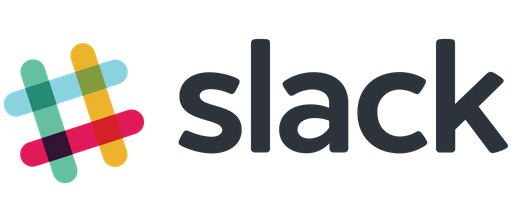Communication is key. Especially when you’re running a business. Being able to communicate with your co-workers and employees is imperative if you want your business to be a well oiled machine. Without good communication platforms, you’re out of luck if you don’t have every single person’s cell phone number or email at the ready.
Luckily, there are several communication platforms that are available. From Groupme and Asana to Clip Up and Slack. There are actually more platforms, such as discord, that are used for other means– mainly private groups among friends. However, we’re going to focus on communication platforms that would be most effective for cleaning companies.
When it comes to trying to figure out what’s best, we will weigh the pros and cons of each and take into account a few things, such as industry standard and ease of use.
1. Slack
Slack is far and away the most popular choice for number one. Being used in most professional settings, this communication platform is arguably the pinnacle of professional in-house communication.
Slack allows you to organize your communication very effectively by sorting your employees by department. Instead of one huge group chat, you have specific chats that allow you to quickly message a whole lot of people at once while also keeping the message relevant to everyone in the chat. This can be useful if you need someone or something as soon as possible from a specific group of people, say all your window cleaners. One message can go out to all of them and get your job done quicker.
Slack also prides itself on making sure any form of communication runs smoothly. They’ve made it so sharing files and anything else that makes running a business easier, happens without a hitch. You can even voice call and have video conferences within the program itself.
One of the better reasons for slack is that it is free. There are expansions you can pay for, but they are mainly for large corporations where that sort of thing is needed.
Honestly, one of the main reasons Slack is so big is because it’s a name brand now. According to a poll conducted on Cleaning Business Today’s Facebook, 75% of voters used slack.
However, some drawbacks of Slack include its setup. For beginners or those who are less than tech savvy, this platform can be quite confusing. There is so much of everything and it can be pretty easy to get lost.
Another main complaint of slack is that it is very distracting. Slack actually uses an addiction model that many social media platforms use. By using a subtle reward system they can make you more and more likely to sink time on the platform itself.
2. ClickUp
ClickUp seems to be the up and coming contender to Slack. With very similar features to its more prominent counterpart, this communication platform has stellar reviews that boast how useful it is in not only business life, but ordinary life.
A reviewer said, “The primary reason we switched to ClickUp was the ability to make recurring tasks, such that we could keep track of maintenance tasks in our home that doesn’t have to be done every week. Before, I managed this manually for us, but now we have automated this with clickup.”
Some cons that come along with ClickUp seem to be how it is designed. Many reviewers say how difficult it can be to differentiate between functions and labels. Other than that, reviews seem to be praising ClickUp.
ClickUp actually tied for second in the poll, coming in at 12.5% of voter’s choice for the communication platform.
3. GroupMe
Coming in third is GroupMe. This communication platform can be commonly found on college campuses across the country. Usually used for students to talk during projects, this software is extremely useful if not fairly simple overall. It’s main purpose is to create group messages that can be created or dismantled very easily.
The main downside to GroupMe is that this is basically all it can do. You can either have private messages, or group chats. There are some small features such as creating polls, but that doesn’t make up for the lack of options that a powerhouse like Slack has.
However, because it is simple and free it is a great choice for a company that is just starting out. Due to this, I believe that is why it also tied ClickUp with 12.5% of votes.
4. Asana
Last and not least is Asana. Asana is another choice if you do not want either Slack or ClickUp. Based on design and functions, it looks to be more of a direct competitor of ClickUp. As a program it seems to be more of a management tool than a communication tool.
Of course, you can still communicate with Asana, but it seems to mainly be used for scheduling and making your business run efficiently.
With this being the case, it makes sense that it scored the lowest on our poll. However, this could also be attributed to industry standards pushing certain platforms to the forefront.
Hopefully this article helps you decide which one of these communication platforms is best for you. Make sure to some extra research to see what platform fits your business.
Brandon Meyer is an intern working for Cleaning Business Today and Blue Skies Services.
For more articles, subscribe to our newsletter!





